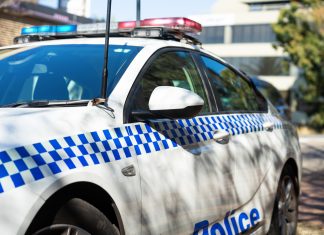Gippsland health services and community groups are set to receive about $2.3 million to combat the ‘ice epidemic’ that is crippling regional Victorian communities.
Victorian Mental Health Minister Martin Foley announced a $24.6 million package on Friday, to expand rehabilitation services and prevention programs across the state. It arrives as part of the government’s $45.5 million Ice Action Plan announced in March, and will see the Latrobe Valley receive the equal-largest contribution in Victoria.
Latrobe Community Health Service will receive about $1.9 million for a non-residential rehabilitation program and $180,000 to establish a needle and syringe service, over four years.
LCHS chief executive Ben Leigh said he had spoken at various levels for months, and would work with the government on an ongoing basis.
“Particularly about what the needs of Gippsland are in regards to drug and alcohol rehabilitation,” Mr Leigh said.
“Demand for our services is always very high and has been for some time.”
Between 2012/13 and 2013/14, drug-related offences climbed in Latrobe City by an average of almost 42 per cent.
Each month LCHS sees about 25 people who have an amphetamine addiction.
Amphetamines have overtaken cannabis as the primary drug of use among LCHS’ clients, with alcohol the only substance more commonly reported as clients’ first choice.
LCHS will partner with Windana Drug and Alcohol Recovery in St Kilda to set up its non-residential rehabilitation program at its Moe centre.
Participants will attend the facility four days a week for six weeks, sleeping at home while undertaking group therapy, counselling and self-help sessions during the day.
“It’s good for the government to recognise the need in rural areas,” Mr Leigh said.
“I’m very pleased this funding is coming through this rural area (and the government) recognised the importance of community-based models.”
Mr Foley told The Express extensive community consultation pointed to Latrobe Valley as one of the regions in most-need across Victoria.
He said by expanding LCHS’ needle and syringe program, all areas of ice-use could be addressed.
“The scourge of ice resonates through lots of different areas,” Mr Foley said.
“Because of its nature, ice is used in a variety of ways – one of which sees an expansion of needles.”
He pointed to the need for community education and family support programs, with an emphasis on identifying prevention strategies.
AFL Gippsland and East Gippsland Ice Prevention Working Group will each receive $10,000 for community ice action work, while $200,000 will be provided to Bass Coast Health for family support programs.
Mr Foley and Member for Eastern Victoria Harriet Shing each said the entire package arrived as “stand-alone funding”, which would not affect existing drug and alcohol services.
“I was again really pleased and relieved to announce the $2.3 million for support services to reduce the harm and knock-on effects of ice across Gippsland,” Ms Shing told The Express.
“This is more than just a law-and-order issue, it’s a health issue, a community issue and it’s something that’s touching the lives of individuals and families right around Gippsland.”
Funding will be available as of 1 July and all programs are expected to be up and running by 1 October.
If you or anyone you know is affected by ice, contact Latrobe Community Health Service on 1800 242 696 or visit your nearest LCHS centre to speak with a professional.










